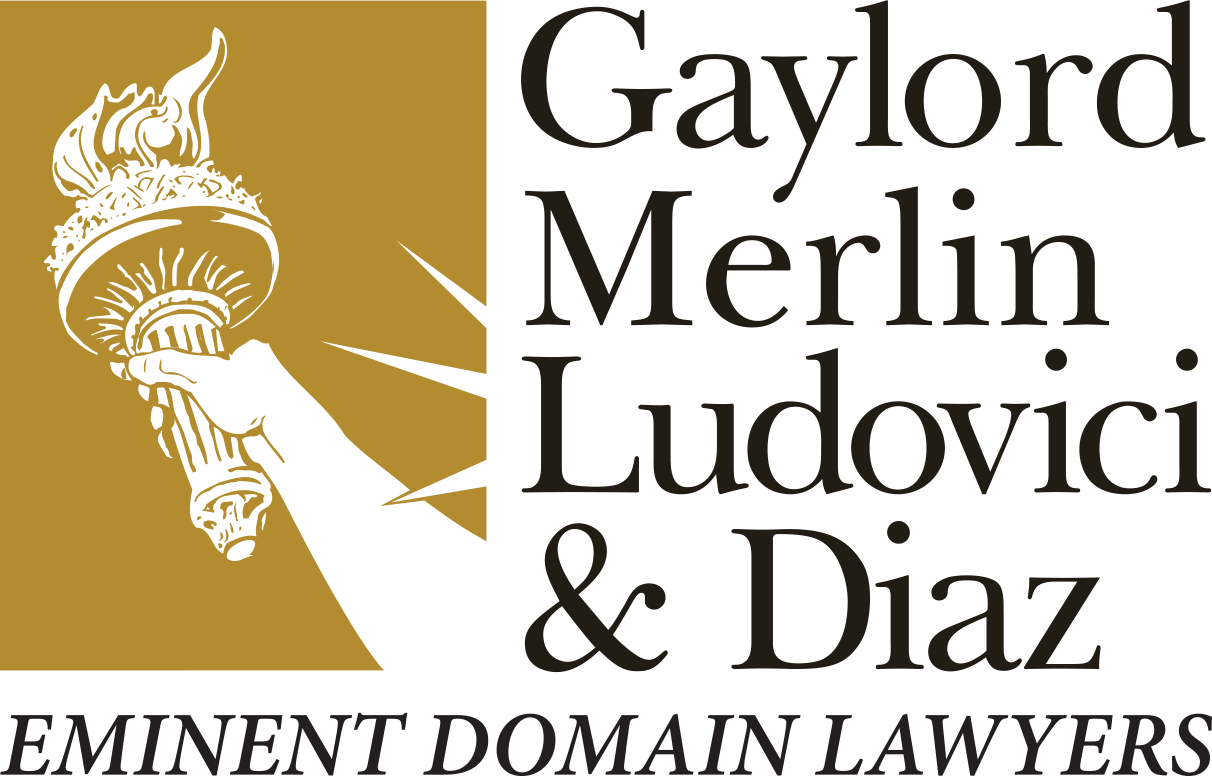“Eminent domain” is the fundamental power of the government to take private property for a public use without the owner’s consent. An entity using the power of eminent domain is called a “condemning authority.”
The power of eminent domain is an inherent attribute of government that is absolute, except as may be limited by the Constitution.
The power of eminent domain arises from the practical necessity to take property for the public good, and every property owner holds title subject to the superior right of the government to take it for a public use.
The government cannot take private property unless it pays the owner just or “full” compensation for his property, and the taking must be for a public purpose.
Our law firm represents property and business owners who suffer a taking of their property by the government or other entity having the power of eminent domain. Our attorneys devote their practice to this special area of the law and are dedicated to protecting landowners’ rights when their property is taken for a public use.
Inverse Condemnation
We have the resources and experience to protect you.
Inverse condemnation is a term typically used to describe the legal action filed by an owner against an entity with the power of eminent domain for an indirect taking of a property right. It is a bifurcated proceeding where a taking of the property right must first be declared by a judge.
When the government adversely impacts a citizen’s private property rights to such a degree that the property owner loses an essential element of those rights, then a “taking” may have occurred.
The government or certain non-govermental entities may take property directly by instituting eminent domain, or may take property indirectly by damaging it to such an extent that it is in effect “taken.”
The owner’s remedy for this type of indirect taking is the filing of an “inverse condemnation” action against the government agency entity that caused the harm.
Inverse condemnation is an action by an owner against the government to recover the value of the property that has been indirectly taken, even though no eminent domain has been sought by the government.
Our law firm has handled numerous inverse condemnation actions on behalf of property owners.
Our experience on inverse cases includes damages to private property for flooding, denial of development permits, denial of drilling permits, loss of access, enactment of “maps of reservation” that prohibited the owner’s use of its property, shutting down an owner’s business on the basis of alleged nuisance, and condemnation blight.
Property Rights Litigation
We have the resources and experience to take your case to trial.
In addition to eminent domain and inverse condemnation, our law firm has experience assisting owners in protecting their property rights when the government tries to do something that adversely affects the owner’s land.
For example, the government may attempt to limit an owner’s access to its land by closing an existing driveway or significantly reducing the size and width of the driveway. Or the government may intend to construct a raised concrete median in the road that denies an owner the ability to make left turns into and out of his property. Although the government may be legally permitted to make these changes to an owner’s access under applicable law, it may not have properly sought the requested access change, or may in fact not be allowed to do what it is trying to do.
Our firm has experience in representing landowners and business owners in both driveway closure and median construction cases. We have been often successful in convincing government to allow the owner’s access to remain, or we have proposed an alternative that preserves the owner’s access yet satisfies the government’s design or safety concerns.
Our firm has experience in handling Bert J. Harris property rights claims on behalf of owners and is equipped to prepare and pursue these actions if requested. When an owner’s property rights have been substantially impacted by a government regulation or action, the owner may have a remedy under the Bert J. Harris, Jr. Private Property Rights Protection Act. This is a statutory provision enacted in 1995 which is designed to provide relief to property owners when an action of a governmental entity has placed an inordinate burden on the existing uses or vested rights to specific uses of real property. This Act provides a new cause of action for governmental conduct that damages private property but may not rise to the level of a constitutional taking under the law.
